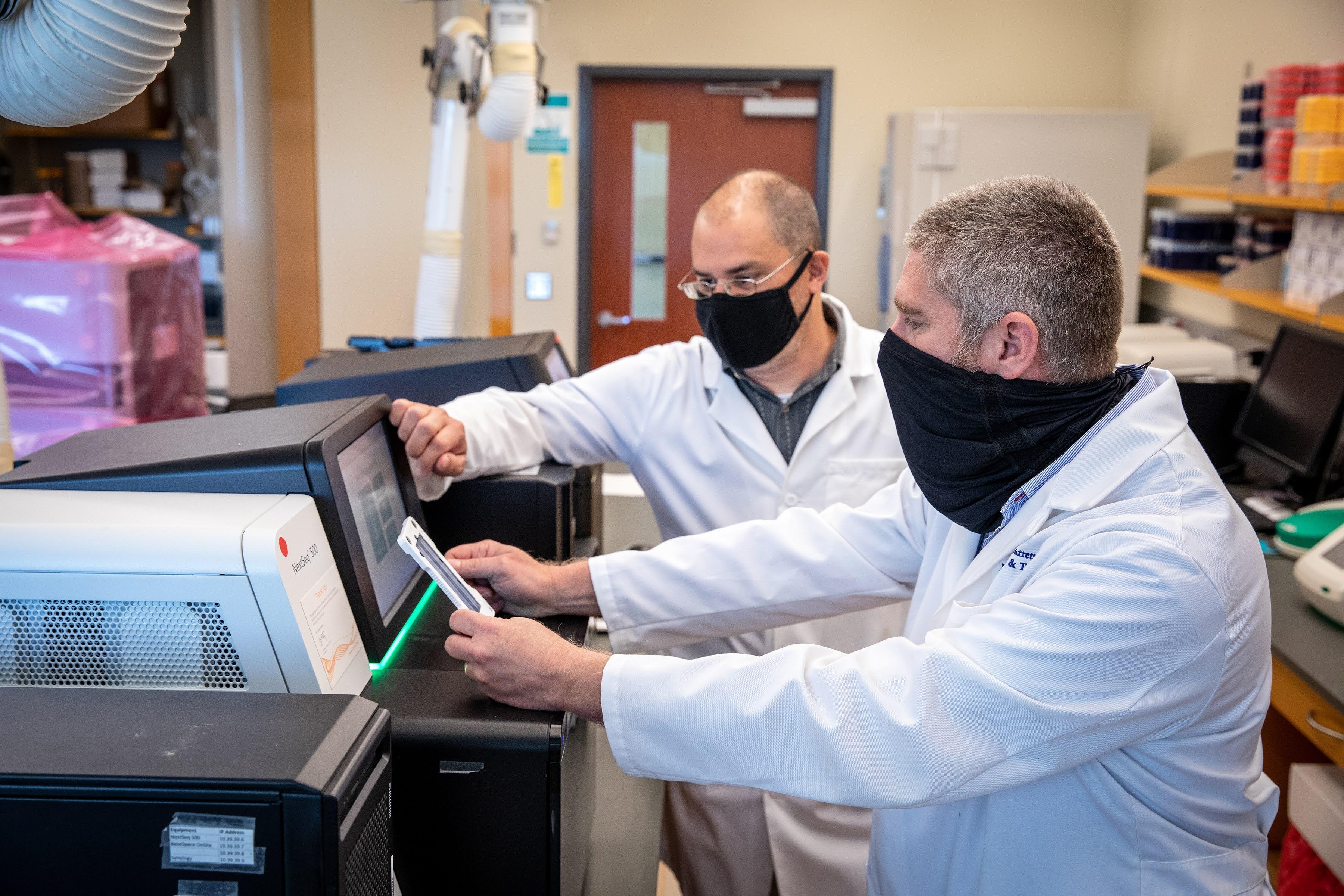At the University of Mississippi Medical Center, a state-of-the-art research lab is sequencing dozens of coronavirus samples to see if they are variants. Dr. Michael Garrett heads the lab.
“In some ways, it’s not like an old professor looking through a microscope, it’s like a zoomer looking through a CDC camera and taking the pictures.”
Most samples they work with are collected by the medical center, but they also have surveillance partnerships with the Department of Health and the CDC.
After pathologists test someone for the coronavirus, they neutralize the virus and send it to the lab. Even though these viruses are not contagious Dr. Garrett says they only handle samples under a ventilated hood, or by using robotic tools. He says a computer reads the DNA to identify variants.
“The sample is taken up through some pipes and then it ends up in what is called this flow cell. The samples and the individual fragments of the virus wash across, and they bind to this,” says Dr. Garrett. “Ultimately, this machine will then image this flow cell to identify all those millions of spots to determine the sequence.”
Each sample gets a barcode-like identifier to ensure data is not lost during processing. Once they know if the sample is a variant or not, findings are reported to the Department of Health along with other data for tracking viral transmission. Microbiology and immunology professor Dr. Ashley Robinson says the lab is the most advanced genetic research facility in Mississippi, and they are processing around 50 coronavirus samples per week.
He says “It also lets us take on a project like this where speed is an issue. You know, if we sequence these months and months after the fact, that’s not as helpful or helping with the pandemic. So we’re sequencing within a week time, and the automated systems really help with that.”
Health officials say the Delta strain is the most predominant coronavirus variant in Mississippi, and recently a more transmissible version of the Delta variant was identified in Louisiana.




